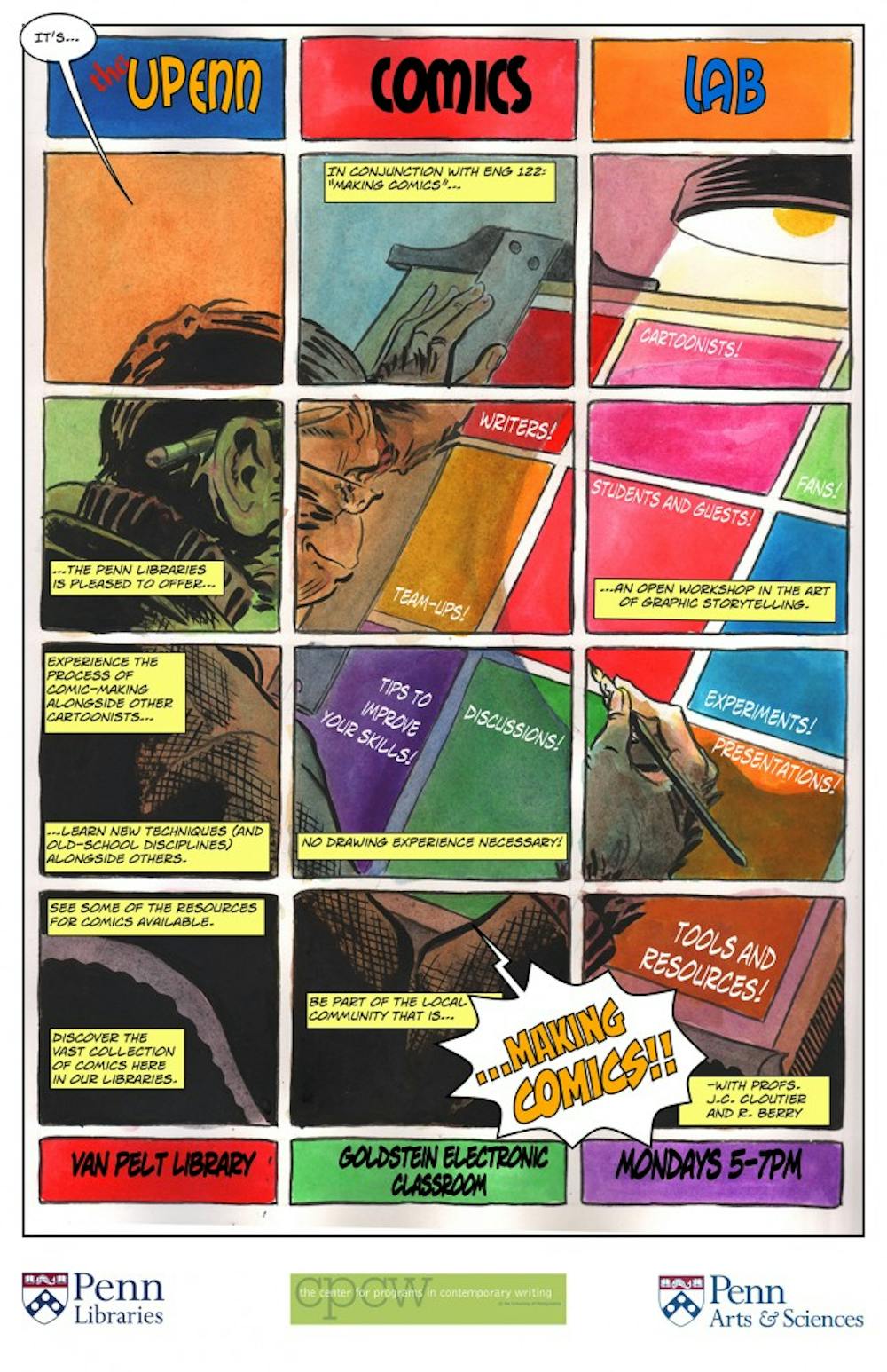The projection of an empty comic page is strikingly bright against the dimness of the room. A few students are clustered around a desk, looking on attentively as professor Robert Berry explains what he is doing. As he carefully outlines lineart with a fine–tipped pen, he describes how mistakes can be covered up by adding some shadows, which adds “more dynamism” to the panel.
Comics Lab is a weekly comic workshop held on Mondays from 5 p.m. to 7 p.m. in Van Pelt Library, and is open to students of all skill levels. It’s run by Berry, who has been creating comics for years now, and professor Jean–Christophe Cloutier, who has been teaching comics since 2012.
What began as a passion in middle school and high school led Berry to get “involved with webcomics with a digital humanities approach” in 2000. Since then, his most well–known work being Ulysses “Seen,” an adaptation of James Joyce’s Ulysses. It was through this project that Berry got the opportunity to speak with Penn about how “comics should be taught as a language.” This idea led to more comic programs at Penn.
As for Cloutier, during his time at Columbia as a grad student, he designed the school's first course that taught comics as literature. When he came to Penn, he continued to do the same here with the English department class, Making Comics.
However, Berry states that while they have formally taught programs for the past few years, they have “never really had an open workshop environment for new people learning about comics to interact with people already making comics.” Cloutier calls it “their joint effort to bring comics to Penn.” The two are a dynamic duo; they even run a course blog together dedicated to their comic—making cause.
Berry hopes to provide newcomers “a friendly environment for learning about what their own desires are in terms of making comics.” He also emphasizes that they will find a supportive community here as well as an environment in which they can to learn from others. Cloutier echoes his sentiments, calling the workshop “an extra opportunity for students to learn” as well as “something that would be open to the wider Philadelphia and local area."
In terms of the actual comic–creating process, Berry went over drawing and layout techniques. He also gave more general formatting advice, saying that students should be “thinking about panel placing” and discussing the trickiness of different fonts, because while they can be used to denote effects, such as a dialogue change, it’s best to not overuse them.
As for speeding up the comic–creating process, Berry went over how to use Comic Life. Comic Life is a system used to construct comic book pages from pre–made templates. While it may not be as vastly capable as Photoshop, it is “a great starter kit for people who want to think about the architecture of the comic page."
Although it was only the first session of Comics Lab, Berry and Cloutier do have a vision for its future: Berry hopes that it will continue beyond this semester, and for Penn “to be able to be a place that people can think of to come and learn the art behind comics.” Similarly, Cloutier hopes that bringing comics to Penn will give comic creation “an air of respectability.” They also hope to invite artists to come in and talk about their work and to keep teaching students to—as Berry puts it—“let the drawing come naturally.”

